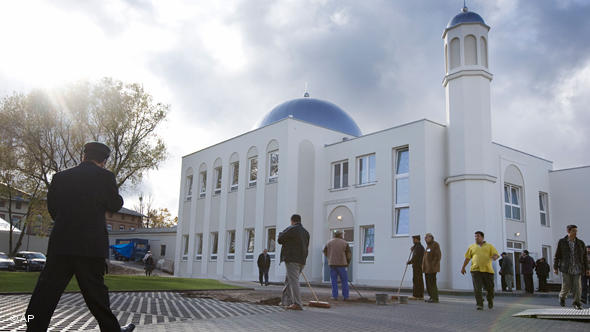 This month, member states of the United Nations will vote on what has become an annual resolution, “On Combating Defamation of Religions,” put forward by the Organization of the Islamic Conference, a group of 57 states with large Islamic populations. The resolution condemns what it calls “defamation of religions” — a vague notion that can perhaps best be described as a form of expression that offends another’s religious sensibilities — and urges countries to enact laws that prohibit such forms of expression. The resolutions are part of a larger and dangerous campaign to create a global blasphemy law to combat what Muslim leaders refer to as “Islamophobia.”
This month, member states of the United Nations will vote on what has become an annual resolution, “On Combating Defamation of Religions,” put forward by the Organization of the Islamic Conference, a group of 57 states with large Islamic populations. The resolution condemns what it calls “defamation of religions” — a vague notion that can perhaps best be described as a form of expression that offends another’s religious sensibilities — and urges countries to enact laws that prohibit such forms of expression. The resolutions are part of a larger and dangerous campaign to create a global blasphemy law to combat what Muslim leaders refer to as “Islamophobia.”
The Wrong Way to Combat ‘Islamophobia’
By-Paula Schriefer
Opinion
00:11
Sunday ,21 November 2010

Such a campaign is deeply flawed from a human rights perspective, both in its equation of religious discrimination (a legitimate human rights violation) with the vague concept of defamation, as well as in the proposed remedy of imposing legal limits on freedom of expression. A recent Freedom House report looking at blasphemy laws in seven countries documents the negative impact of such laws on a range of fundamental human rights, while noting how such laws actually contribute to greater interfaith strife and conflict.
Because no one can agree on what constitutes blasphemy, laws that attempt to ban it are themselves vague, highly prone to arbitrary enforcement and are used to stifle everything from political opposition to religious inquiry. Particularly when applied in countries with weak democratic safeguards — e.g., strong executives, subservient judiciaries, corrupt law enforcement — blasphemy laws do nothing to achieve their supposed goals of promoting religious tolerance and harmony and instead are disproportionally used to suppress the freedom of religious minorities or members of the majority religion that hold views considered unorthodox.
In Pakistan, for example, Christians and Ahmadiyya (Muslims who do not believe Muhammad was the final prophet) make up only 2 percent of the population, but have been the target of nearly half of the more than 900 prosecutions for blasphemy in the past two decades. The remaining prosecutions have been made against Muslims themselves, often simply as an easy way to settle personal scores that have nothing to do with religion. Mere accusations of blasphemy have led to mob violence in which people have been maimed or killed and whole communities devastated.
The governments of countries that already have such problematic laws on the books are precisely those countries leading the charge to create an international blasphemy law through the United Nations. The motivations of states like Egypt, Pakistan and Saudi Arabia — countries with appalling records on religious freedom and broader human rights — are unquestionably hypocritical and have more to do with their desire to score points with unhappy domestic populations and religious extremists than the desire to foster religious tolerance.
Support for blasphemy laws is high among the general public in the Islamic world. Even the staunchest advocates of human rights in the Middle East, individuals who are openly critical of their corrupt and authoritarian leaders, balk at the idea that the publication of the Danish cartoons or the burning of a Koran should be protected forms of freedom of expression. In a part of the world where one’s religion is as key to one’s identity as nationality and race, most people simply view such forms of expression as a bigoted attack on their very existence.
Such views are bolstered by the need to better address the real issues of discrimination and violence against individuals because of their religious beliefs, even in established democracies. It is a fact that political parties espousing xenophobic and anti-Islamic views in Europe have gained in both popularity and representation, and that legal policies have been enacted that most human rights organizations rightly see as restricting the fundamental rights of Muslims to practice their religious beliefs. It is also a fact that many of the same people who defended the Danish cartoons as an important form of free expression somehow feel perfectly justified in criticizing the plans to build an Islamic Center near the site of the World Trade Center because it offends them.
Yet hypocrisy in Europe and the United States does not justify attempts to bring governmental oversight into what constitutes offensive expression. Even with the best intentions, which are often lacking, governments should never be in the business of policing speech. The tools of defeating intolerance, including religious intolerance, start with a legislative environment that protects people’s fundamental political rights and civil liberties, including freedom of expression. Blasphemy laws don’t work in any context and U.N. member states should reject them unconditionally.
_____________________________________________________________
Paula Schriefer is the advocacy director at Freedom House. The International Herald Tribune.


